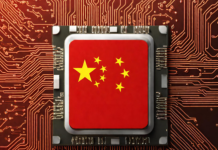In a landmark move, Qorvo the renowned US wireless connectivity chip company, has entered into a definitive agreement with Luxshare Precision Industry Co., Ltd. to divest its assembly and test facilities in Beijing and Dezhou, China. The transaction, expected to be finalized in the first half of 2024, marks a significant realignment in Qorvo’s global manufacturing strategy and underscores the broader trend of American tech companies diversifying their production networks.
Luxshare, a global advanced contract manufacturer and a key assembler for Apple, will acquire Qorvo’s operations, including property, plant, equipment, and the existing workforce at the Beijing and Dezhou facilities. Qorvo’s CEO, Bob Bruggeworth, highlights the historical significance of these facilities in supporting Qorvo’s highly integrated advanced cellular products.
Importantly, Qorvo is set to retain its sales, engineering, and customer support teams in China, ensuring uninterrupted service to its customers. Financial terms of the deal have not been disclosed, but Qorvo’s CFO, Grant Brown, emphasizes the alignment with efforts to reduce capital intensity and support long-term gross margin objectives.

The sale also includes a post-transaction supply agreement, wherein Luxshare will assemble and test Qorvo’s mobile phone products, reinforcing the strategic partnership between the two companies. Luxshare’s evolution from a computer cable assembler to a key player in Apple’s manufacturing supply chain aligns with the broader trend of American tech companies reducing reliance on China-based production facilities.
Luxshare’s recent wins, including securing orders for Apple’s Vision Pro mixed-reality headset, underscore the company’s growing ambitions and its increasing role in Apple’s product manufacturing landscape. The company’s expanded responsibilities came into focus following Foxconn’s Zhengzhou plant disruptions, leading to delays in iPhone 14 series shipments and influencing Apple’s decision to shift more work to Luxshare.
For Qorvo, the transaction is a calculated strategic move that reshapes its manufacturing footprint while maintaining a valued presence in China. As the deal progresses, it is poised to have a ripple effect on the global supply chain, contributing to the ongoing production shift from China to emerging manufacturing hubs in Asian countries such as Vietnam and India.
Related:
- Apple resorts to the Chinese supply chain for the mass production of the Vision Pro MR headset
- Chinese semiconductor firms turn to Malaysia for high-end Chip Assembly amid US sanctions
- Chinese Chip maker Changxin Memory Technologies (CXMT) makes strides in DRAM Technology amidst Global challenges
(via)







